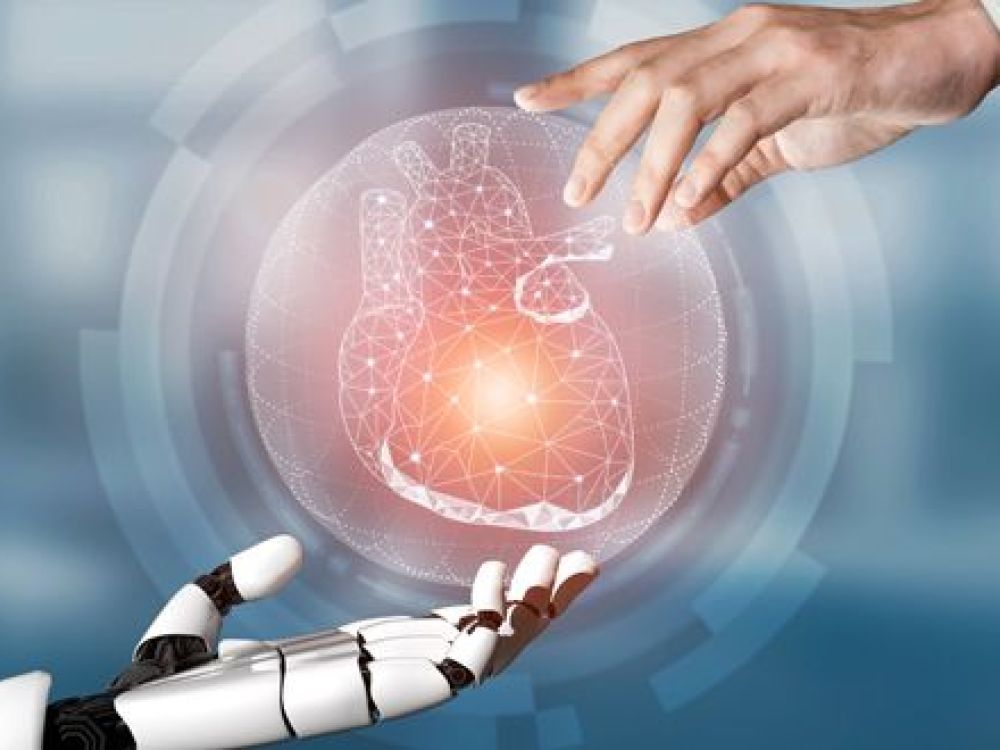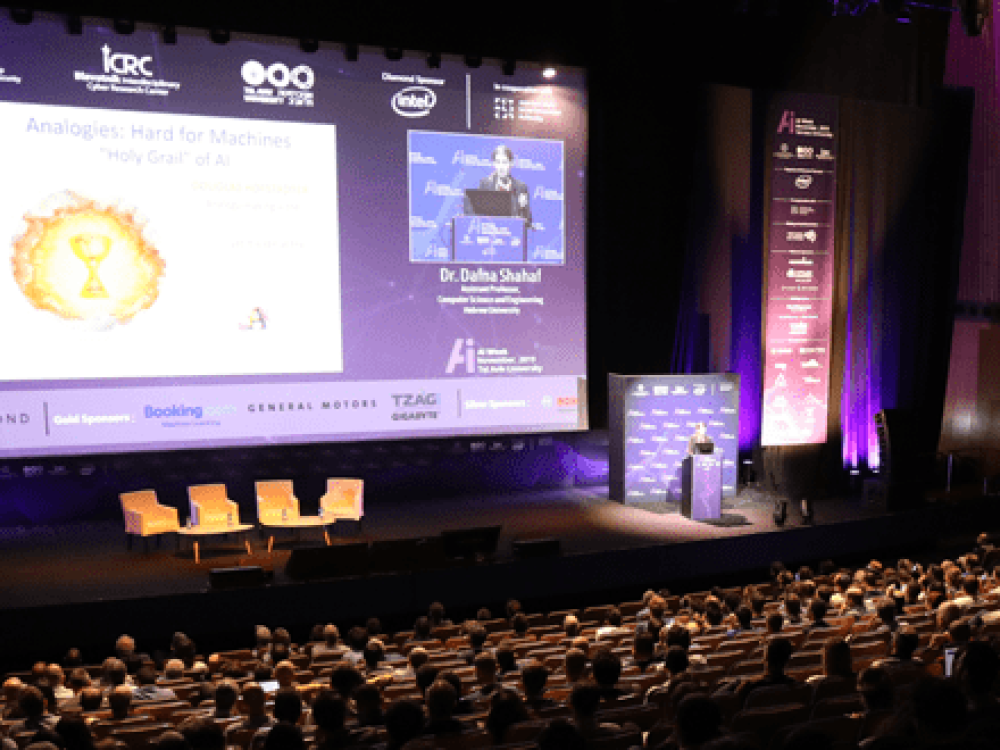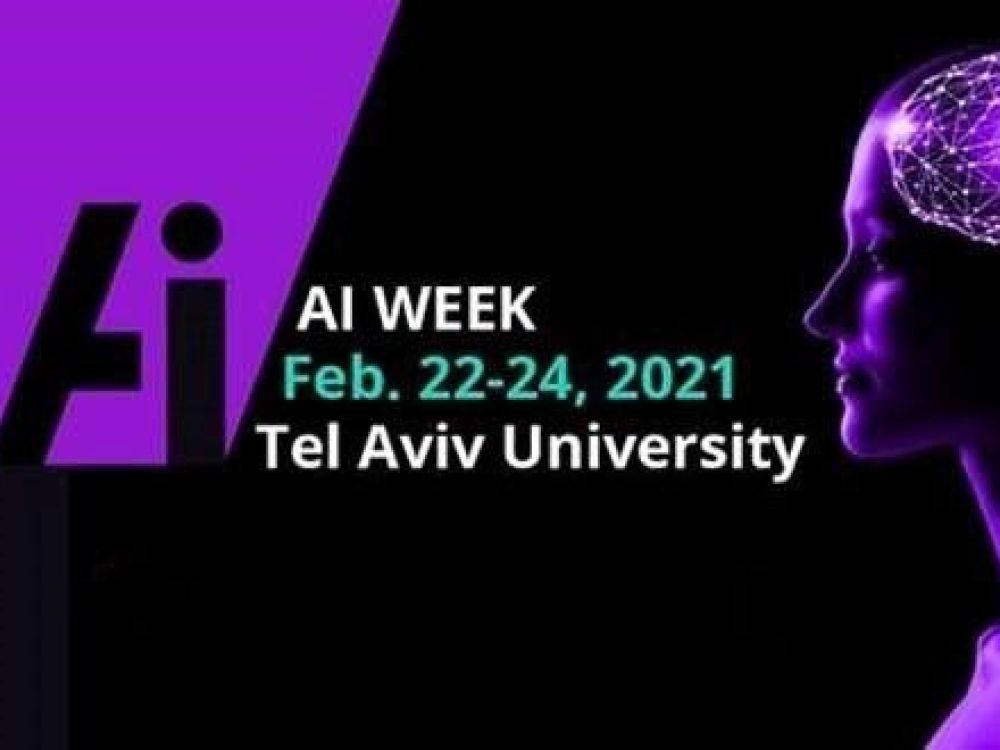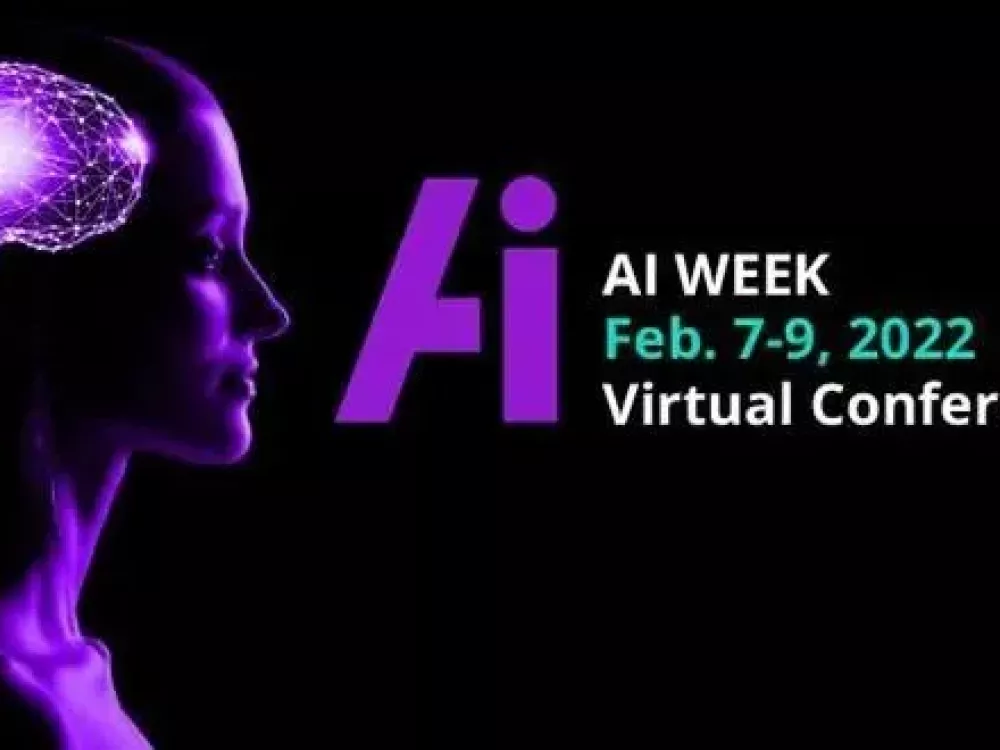
Exploring New Frontiers in AI
With the global artificial intelligence market skyrocketing, TAU’s new Center for AI and Data Science leads the way in Israel—and beyond.
The endless possibilities of artificial intelligence (AI) have ignited human imagination for decades. From Star Wars and Blade Runner to the recent Superintelligence, people have imagined a world powered by AI. And although those realities are still in the realm of the future, AI and machine learning are quickly becoming the next frontiers for academic institutions such as Tel Aviv University as well as businesses and governments.
With the global AI market expected to grow to $800 billion annually in the coming years, former Israeli Prime Minister Benjamin Netanyahu tasked two Tel Aviv University professors with leading the National Initiative for Secured Intelligent Systems. They are Major Gen. (Ret.) Prof. Isaac Ben-Israel, Head of the Blavatnik Interdisciplinary Cyber Research Center (ICRC), and Prof. Eviatar Matania, Head of TAU’s Security Studies program. The pair’s resulting report recommends making AI a top national priority and is a blueprint for positioning Israel as a top five global AI superpower in the coming decade.
TAU has already taken a leadership role in advancing AI in Israel with its annual AI Week Conference. At the February 2021 conference, which took place virtually, TAU’s Prof. Meir Feder announced the launch of a new interdisciplinary Center for Artificial Intelligence and Data Science, which he heads. “By deepening and disseminating AI expertise, the new Center will boost Israel’s flourishing high-tech and biotech industries and impact all aspects of life. It will create new opportunities in many fields including personalized medicine, drug design, social sciences, neuroscience, materials science and digital humanities,” says Feder. “In addition, the Center will enable all TAU students, no matter what they study, to gain a basic education in AI and Data Science. We will do this by building a curriculum that exposes them to AI concepts, to be implemented in the upcoming academic year.”
AI, which revolves around the quest to build machines that can execute human-like tasks and behavior and beyond, has been a “holy grail” for scientists for many years, says Prof. Amir Globerson of the Blavatnik School of Computer Science and a member of the AI Center’s academic management team. “Almost every aspect of our daily lives can and will be changed by these emerging technologies” says Globerson. “These include the way we clean our homes, receive health care or drive a car to the way we predict natural disasters.” To use AI technologies in real-world solutions, AI research must be an interdisciplinary effort, he explains. This means combining core disciplines of engineering, statistics and computer science with complementary fields such as law, medicine, psychology, economics and humanities. “It is essential for us to build up the capabilities of the Center to help researchers fulfill the potential of AI in all of these fields,” he says.

Prof. Amir Globerson (Photo: Moshe Bedarshi)
TAU: Multidisciplinary AI Powerhouse
With its influential group of researchers in core AI, TAU is already considered a world leader in the field, with strong performances in terms of prestigious grants, publications in top journals and industry ties. Collaborative AI projects in the TAU pipeline include developing automated tools for analyzing crop growth to help farmers in Africa improve yield; processing vast amounts of data to understand genome patterns and sources of diseases; and studying communication between caregivers and infants to recognize patterns that can facilitate better language development. TAU also has a relationship with Russia’s largest technology company, Yandex, which founded the Yandex Initiative for Machine Learning to strengthen AI and machine learning among TAU students and faculty, Globerson notes. He adds that the University views educating the next generation of researchers and technologists in this field as a priority.
Recently, the “AI for Social Good” initiative, funded by Google at TAU’s AI Center, announced grants for 10 new interdisciplinary projects. The winning projects include: an early warning system for invasive fish species from the Red Sea into the Mediterranean Sea; a technical solution for ensuring fair use of copyrights online; and an image recognition system to allow Dead Sea Scroll scholars to compare old photographic images with new high-resolution spectral images of ancient scroll fragments.
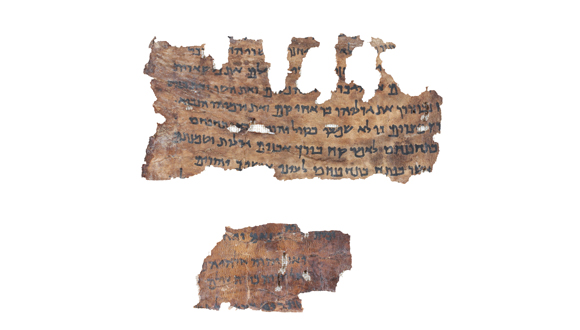
Dead Sea scrolls (Photo: Shai Halevi)
AI and the War against COVID-19
During the COVID-19 pandemic, Prof. Irad Ben-Gal, head of TAU’s AI, Machine Learning, and Business & Data Analytics lab, collaborated with Dr. Dan Yamin, both of The Iby and Aladar Fleischman Faculty of Engineering, to correlate human mobility with outbreak patterns. They used AI mapping technology to determine ideal implementation of movement restrictions. For example, they designed a system to optimize the lockdown structure in a smart city according to the movement of people, instead of shutting down an entire metropolis such as Tel Aviv. Moreover, by using data collected from groups of 50 people—either through car sensors or mobile-phone tracking—rather than individuals, they protected people’s privacy. Though the system was never fully implemented, both the Prime Minister’s Office and the Health Ministry used the data compiled by the TAU researchers to gauge reactions to those lockdowns, says Ben-Gal, who co-heads the Koret Program for Smart Cities and Digital Living in collaboration with Stanford University and serves as a Board Member of TAU’s Shmeltzer Institute of Smart Transportation. Modeling human mobility patterns can optimize a city’s allocation of smart utilities such as electricity, lighting systems and transportation routes, Ben-Gal explains. “In Israel, this modeling has been used for placement of mobile missile shelters, using data collected during missile attacks in the South to indicate where people were concentrated.”
A Game-Changer for Biomedicine
As head of the Functional Genomics Laboratory at TAU’s Sackler Faculty of Medicine, Prof. Noam Shomron also uses AI and machine learning to better lives. He does this by exploring new aspects of genomics through DNA and RNA research.
In one study, his lab followed thousands of pregnant women from their 10-week blood tests through to the end of their pregnancy, when a small percentage of women suffer from the life-threatening condition of preeclampsia. Though physicians can sometimes predict the possibility of preeclampsia based on high blood pressure or stress, Shomron’s lab reduced 20 million possible RNA molecular markers for preeclampsia to only 25. He accomplished this by using AI and data methods to analyze RNA snippets in blood samples both of women who suffered from preeclampsia and those who didn’t.
“Using this data, you can predict to a certain probability at the beginning of a pregnancy if a woman will suffer from preeclampsia later on. With this knowledge, you can prescribe early preventive treatment, which is a low dosage of aspirin—a simple remedy that can save lives,” says Shomron. Using the same blood samples, his lab computationally separated the embryonic DNA from the mother’s DNA. Applying AI-based algorithms, the team was then able to decipher the entire DNA of an embryo using just a blood sample from a woman at week 10 of her pregnancy. This testing method could be an effective alternative to amniocentesis, an invasive prenatal testing method which uses a needle to remove fluid from the uterus, and other similar tests. Cooperation with physicians from among TAU’s 17 affiliated hospitals has been vital to his team’s research, Shomron says. “We work closely with clinical teams who will eventually use the data and need to trust it,” he says. “Algorithms won’t replace clinical teams, but they will assist them in their decision-making.”
Advances for the Justice System
In addition to revolutionizing health care, education and transportation, AI technology is also transforming the legal world, says TAU’s Prof. Niva Elkin-Koren of The Buchmann Faculty of Law. For more than two decades, Elkin-Koren has been studying the implications of digital technology and AI on the legal sphere.
Lawyers already use machine learning systems to predict damages and analyze what lower courts say about an issue, says Elkin-Koren, who is a member of the academic management team of the AI Center. Some judges in the US have begun to use AI risk-assessment systems to support their decision-making process when determining whether to release criminal offenders or impose criminal sanctions. “I am excited about these new opportunities, but also uneasy because in the absence of sufficient safeguards, they could lead to infringements on democracy and civil rights,” she says. “Lawyers are accustomed to thinking in terms of legal concepts, rules, rights and procedures. We have to start thinking of new procedures and legal protections that are more appropriate for this time and age.”
For instance, she says, as police begin to depend more on predictive policing to justify a search —wherein they use computational algorithms based on compiled data to predict whether a person is about to commit a crime—tools must be developed to safeguard civil rights. This requires close collaboration among the lawyers, social scientists, and AI specialists developing these systems; together, they must ensure that the AI systems meet ethical standards and promote societal good, Elkin-Koren explains. A major challenge, she continues, is to assure AI systems are inclusive of minorities and marginalized populations. Learning models are typically based on historical data, which may lead to unintended biases. Her research involves redesigning systems in law and AI to include checks and balances starting from the creation stage, as a means of protecting citizens’ civil rights. Other issues the law must tackle with AI technology, according to Elkin-Koren, are ownership of AI output, regulation of copyrighted material, liability for harm caused by autonomous cars in accidents, and moderation of online speech. Finding the answers to these questions involves revising existing legal doctrines, but also responding to new theoretical challenges about legal agency and collective action.
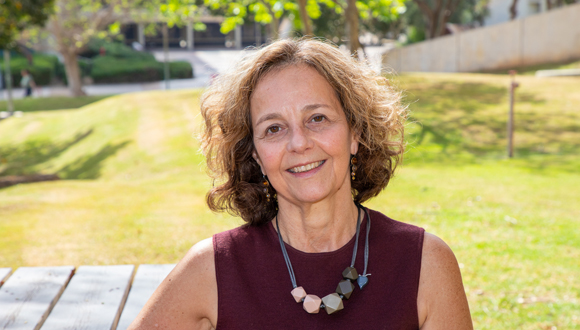
Prof. Niva Elkin-Koren (Photo: Moshe Bedarshi)
Shomron says the same is true in his field of medicine; as society evolves, he says, TAU researchers must continue to study and find ways to respond to emerging challenges. “Our world is changing all the time so we’re always looking at the next frontier,” he says. “That is what we do in academia: We try to invent the future.”
By Judith Sudilovsky
Featured image: Prof. Noam Shomron (right) discusses test results with MDPhD candidate Yazeed Zoabi (left) and doctoral candidate Meitar Grad in his medical genomics lab. (Photo: Yoram Reshef)
Related posts
